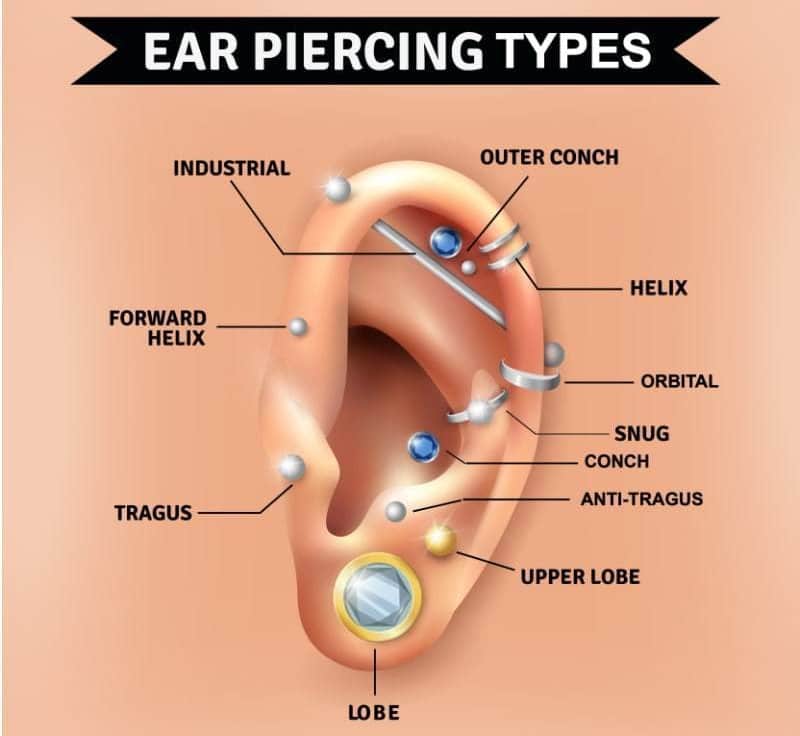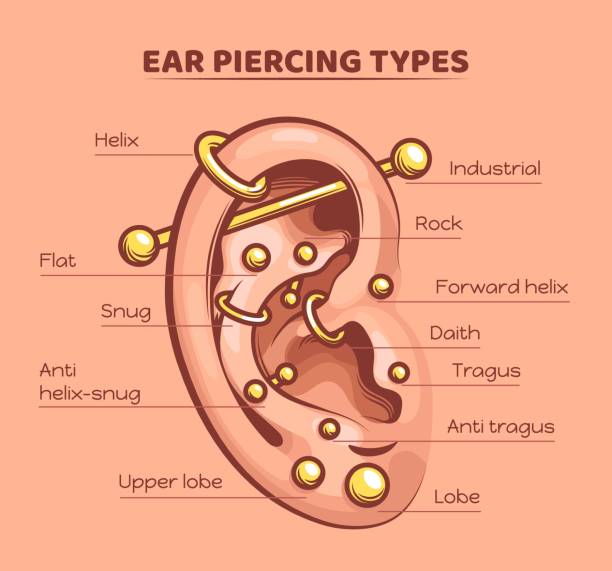Beyond the Basics: A Deep Dive into What is Health in Science

In today’s rapidly evolving world, understanding what is health in science is critical to promoting well-being on a global scale. Scientific definitions of health go far beyond the absence of disease, encapsulating a dynamic state of physical, mental, and social prosperity. By delving into the scientific interpretation of health, we uncover crucial frameworks that guide medical practices, public policies, and personal lifestyles.
The Scientific Definition of Health
What is health in science? According to the World Health Organization (WHO), health is “a state of complete physical, mental, and social well-being and not merely the absence of disease or infirmity.” This definition challenges the traditional, narrow views of health by emphasizing its multifaceted nature. It urges scientists, doctors, and policymakers to address the whole individual, not just isolated symptoms.
Health as a Dynamic Process
Health in science is not static; it is a constantly changing state. Individuals move along a continuum between health and disease based on various internal and external factors, such as genetics, environment, and lifestyle choices.
The Role of Homeostasis
Maintaining homeostasis, or internal balance, is at the core of what is health in science. The body continually adjusts to external changes to maintain equilibrium, which is vital for survival and optimal functioning.
Interconnectedness of Body Systems
Health depends on the harmonious functioning of all body systems. Disruptions in one system can ripple across others, highlighting the interconnected complexity emphasized in scientific studies.
Historical Perspectives on Health in Science
Ancient Understandings
Ancient civilizations like Egypt, Greece, and China developed early models of health that included balance, harmony, and natural elements. Hippocrates, known as the “Father of Medicine,” proposed that health was the result of a balance between bodily humors.
The Biomedical Model
During the 19th and 20th centuries, the biomedical model dominated scientific thought, defining health as the absence of disease, relying heavily on biological explanations.
Modern Holistic Approaches
Today, a more comprehensive view integrates biological, psychological, and social factors, aligning more accurately with what is health in science.
The Pillars of Health According to Science
| Pillar | Description |
|---|---|
| Physical Health | Exercise, nutrition, sleep, and medical care |
| Mental Health | Emotional regulation, resilience, cognitive function |
| Social Health | Relationships, community involvement, support systems |
| Environmental Health | Safe living conditions, pollution control |
| Spiritual Health | Sense of purpose, personal values, and ethics |
The Importance of Public Health
Public health initiatives play a pivotal role in shaping societal well-being by targeting health determinants such as sanitation, vaccination programs, and health education campaigns.
Epidemiology’s Contribution
Epidemiology, the study of disease distribution, underpins many strategies used to improve public health outcomes, shedding light on trends, risk factors, and preventive measures.
Health Promotion and Disease Prevention
Strategies aimed at health promotion and disease prevention are the embodiment of what is health in science, working proactively to enhance quality of life.
Scientific Research and Health Advancements
Clinical Trials and Innovations
Rigorous clinical trials and innovative research methodologies have expanded our understanding of diseases and therapies, pushing the boundaries of medical science.
Genomics and Personalized Medicine
The Human Genome Project revolutionized the concept of what is health in science by paving the way for personalized medicine based on individual genetic profiles.
Biotechnology Breakthroughs
Advancements in biotechnology, such as CRISPR and regenerative medicine, continue to redefine our grasp of health at the cellular and molecular levels.
Mental Health: A Scientific Priority
The Biological Basis of Mental Disorders
Scientific studies reveal that mental illnesses like depression and schizophrenia have biological underpinnings involving neurotransmitters and brain structures.
Psychological Well-being Metrics
Tools such as the General Health Questionnaire (GHQ) and the Mental Health Continuum (MHC) offer quantifiable ways to assess psychological well-being.
Strategies for Mental Resilience
Building resilience through mindfulness, therapy, and social support remains a central tenet in modern interpretations of what is health in science.
Nutrition Science and Health
Essential Nutrients for Vitality
Nutrition science identifies crucial vitamins, minerals, proteins, fats, and carbohydrates as essential to sustaining life and preventing disease.
The Microbiome Revolution
Research into the gut microbiome shows how gut bacteria influence everything from immunity to mental health, expanding the scientific horizon.
Dietary Guidelines and Public Policy
Science-backed guidelines like the Dietary Guidelines for Americans provide practical advice based on extensive research.
Physical Activity and Health in Science
Exercise Physiology Explained
Exercise physiology explores how physical activity impacts body systems, promoting better cardiovascular health, metabolic function, and musculoskeletal strength.
The Science of Endorphins
Physical exercise triggers endorphin release, improving mood and combating stress, a crucial component of what is health in science.
Sedentary Lifestyle Risks
Scientific evidence shows that prolonged inactivity significantly raises risks for chronic diseases, urging a shift toward more active living.
Environmental Health: A Growing Concern
Pollution and Its Impact
Air, water, and soil pollution contribute to millions of premature deaths globally each year, according to WHO reports.
Climate Change and Public Health
Climate change increases the prevalence of respiratory diseases, infectious outbreaks, and food insecurity, demanding urgent scientific interventions.
Building Healthier Cities
Urban planning integrating green spaces, clean public transportation, and sustainable practices promotes better public health outcomes.
Global Health Perspectives
The Burden of Non-Communicable Diseases
Non-communicable diseases like diabetes and cancer now account for 71% of global deaths, emphasizing the need for comprehensive health strategies.
Infectious Disease Control
Scientific advancements in vaccine development and infection control methods have revolutionized our fight against infectious diseases.
Global Health Initiatives
Organizations like WHO and Doctors Without Borders showcase collaborative efforts in improving health standards worldwide.
Technological Innovations in Health Science
Telemedicine
Telemedicine has democratized access to healthcare, allowing patients to consult doctors remotely with the help of modern technology.
Artificial Intelligence in Diagnosis
AI tools such as IBM Watson assist in diagnostic accuracy, enhancing patient care and redefining what is health in science.
Wearable Health Tech
Fitness trackers and smartwatches provide real-time health monitoring, empowering individuals to take control of their wellness.
Ethical Challenges in Health Science
Informed Consent
Ensuring that patients fully understand the implications of medical procedures remains a cornerstone of ethical healthcare practice.
Privacy Concerns in Digital Health
Protecting patient data in an increasingly digital healthcare landscape is vital to maintaining trust and integrity.
Equity in Healthcare Access
Science must also address social inequalities to make healthcare more equitable, inclusive, and accessible to all populations.
Conclusion
Understanding what is health in science empowers us to redefine our approach to well-being by emphasizing a comprehensive, proactive, and evidence-based framework. Health is no longer a passive state but an active pursuit that integrates physical, mental, social, and environmental factors. By staying informed and adopting science-driven habits, we contribute to a healthier, more resilient world.
FAQs
What is health in science according to WHO?
Health is defined as a complete state of physical, mental, and social well-being, not merely the absence of disease.
How does science measure health?
Health is measured using indicators like life expectancy, morbidity rates, mental health assessments, and quality of life indices.
Why is the concept of health in science evolving?
As new research emerges, the definition of health adapts to include genetic, environmental, and psychological factors.
What role does mental health play in scientific definitions of health?
Mental health is integral, affecting overall well-being, productivity, and life satisfaction.
How does the environment influence health in science?
Environmental factors like air quality, access to clean water, and climate change significantly impact health outcomes.
What is the biomedical model of health in science?
It is a model that defines health strictly as the absence of disease, focusing mainly on biological factors.
How has genomics changed health science?
Genomics enables personalized medicine by tailoring treatments to individuals’ genetic profiles.
What is public health in science?
Public health focuses on protecting and improving the health of populations through education, policy, and research.
How important is nutrition in scientific health?
Proper nutrition is foundational for preventing diseases, maintaining immunity, and promoting overall vitality.
What are key global health challenges today?
Key challenges include infectious disease outbreaks, non-communicable diseases, and the health impacts of climate change.
For More Insightful Articles Related To This Topic, Feel Free To Visit: Bloggings Hub













